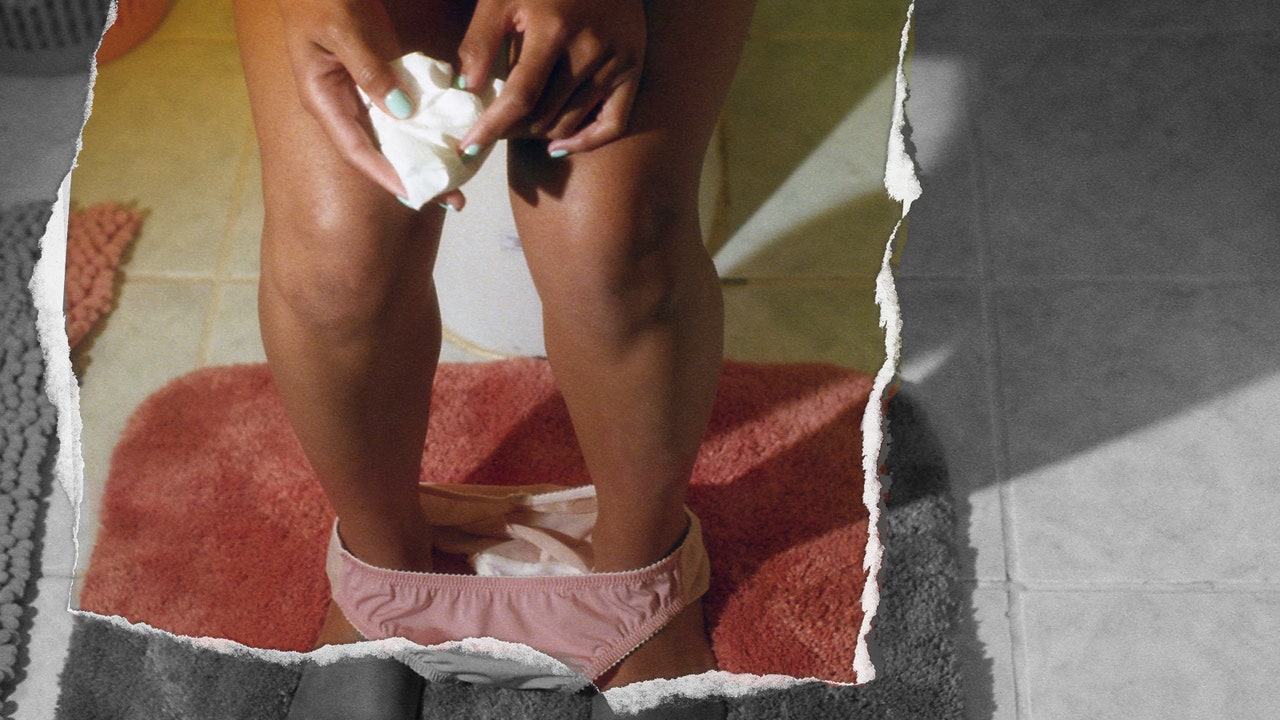Miscarriage Has Always Been Isolating—Then Came the Pandemic

Experiences of infertility always have one thing in common: uncertainty. The countless visits to doctors, the months (or years) of planning, the tens of thousands of dollars, never add up to a guarantee. Even under the best of circumstances, there’s only so much about a pregnancy you can plan, and in the midst of a global pandemic, the idea of planning anything seems foolish. For National Infertility Awareness Week, we’re exploring the uncertainty—and the hope.
Nine weeks into her first pregnancy, Kourtney, a 26-year-old in Tennessee, found her nausea intensifying. Cautious about exposure to the coronavirus and because she had been having an overall healthy pregnancy so far, she skipped her four-to-six-week early-pregnancy appointment, hoping to wait until she was further along. She was vomiting frequently, but since that’s common with many early pregnancies, she wasn’t concerned. In late March she went to the ob-gyn—her first official doctor’s visit during the pregnancy—to ask for medication to alleviate her nausea. During the ultrasound, the doctor couldn’t detect a heartbeat.
According to the Mayo Clinic, about 10% to 20% of pregnancies end in miscarriage. Pregnancy loss is difficult in the best of times, but the restrictions that come in the face of a pandemic—like social isolation and diminished access to health care—can heighten the emotional devastation. “I don’t think anyone realizes how hard a miscarriage can be until it happens to them. You can feel guilt, brokenness, and isolation no matter what outside circumstances surround you,” says Kourtney. “But during a pandemic, you’re stuck in your house alone, unable to distract yourself from the emotional pain and physical trauma from the loss.”
After a miscarriage, the uterus undergoes a shedding process to expel the remaining fetal tissue and uterine lining from the pregnancy. Sometimes doctors manually assist this process via a dilation and curettage, more commonly known as a D&C. Kourtney’s doctor told her that in her case a D&C would be considered elective, she says, and would therefore be difficult to schedule during the pandemic, so she’s waiting to miscarry naturally. Three weeks after she was diagnosed, she still hasn’t started bleeding or cramping yet. “Not being able to hug my family, or even shop for supplies I might need during this process, has been extremely difficult,” she says. “I’ve never felt so isolated or alone, and I’m so scared.”
Rachael L., a 28-year-old in Michigan, miscarried around 11 weeks in mid-March. She was able to get a D&C in the hospital two days after her doctor couldn’t detect a heartbeat, but hospital social-distancing restrictions allowed only one visitor, which was upsetting because she wanted both her mom and partner with her. Thankfully, the medical staff was comforting and compassionate during the surgery. “I felt well taken care of, like the doctors really cared about my well-being,” she says.
But out of the operating room and back in her home, Rachael has found it difficult to deal with people’s reactions to social distancing. She’s tired of hearing complaints of boredom, working from home, and missing out on vacations people had planned because of shelter-in-place. She says, “I wanted to scream at society and say, ‘If only you knew what it’s like to grieve the loss of a baby, of a life that was never brought to fruition.’ I thought to myself, What a life it would be if all I had to worry about was feeling bored, or losing out on a trip to Mexico.”
For those who have had previous miscarriages, it doesn’t get any easier, especially under these new circumstances. Stephanie B., 29, from New Jersey, recently had her second miscarriage in seven months. She’s taking a medication used to stimulate the shedding process, which can cause heavy bleeding. To make a bad situation even worse, she’s had difficulty finding pads due to people stocking up. “Pads were completely wiped off the shelves because of this panic,” she says.
Lucinda B., a 36-year-old in England, started bleeding around 10 weeks on the fourth day of the lockdown in the UK. “The bleeding gradually got heavier and redder so I knew what was happening,” she says. Grieving her miscarriage is challenging enough, she says, but she’s also caring for her three-year-old during shelter-in-place. “I felt so sorry for my son. He was already dealing with his whole life being turned upside down, and now he had a mum who hid away, cried all the time, and had zero patience,” she says. “I felt, and still feel, like I’m failing my son by not giving him a sibling. I’m so anxious around him being an only child, and this is just compounded with the lockdown and my fear of his loneliness.”



